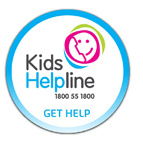Internet Safety: Parents
Digital ReputationDigital reputation
All internet users have a digital or online reputation. This is the opinion or view that others have about the user, based on what they say and do online.
For their privacy and safety, it’s important for children and young people to be aware of where their personal information is available on the internet, who can access it, what others are doing with their information, and the impression they are leaving for others to find.
What are the risks?
When information is posted online it can be difficult to remove and can be easily and quickly passed beyond a child’s immediate circle of friends. It can also be misused by friends they consider trustworthy.
In addition, images and words can be misinterpreted when removed from their original context.
When images and words intended for a small group of people are shared with a broader audience, it can negatively affect the youth’s relationship with unintended viewers. For example, young people might find it difficult to explain to parents why they are tagged in a photo posted online drinking, kissing, with little clothing on or with labels suggesting they are very sexually active.
Managing the risks
Parents need to discuss the consequences of a negative digital reputation with their children. In order to protect their reputation both online and offline young people need to consider how they manage their own and others’ messages and images.
Creating and/or distributing sexual images with minors may constitute the production and/or distribution of child pornography. This can be the case even if the people in the image are willing participants, with outcomes varying by state and territory and on a case-by-case basis. Parents can help by ensuring that their children understand that they may be committing a criminal offence when taking and/or sharing sexual images of themselves, or others, who are minors.
Where do I go for help?
Counselling
If you have concerns about your child’s negative digital reputation or online behaviours, discuss your concerns with them, or seek professional support for your child through the Online Helpline, provided by Kids Helpline. The service provides free, confidential online counselling for children and young people. Your child’s school may also be able to provide support and guidance.





